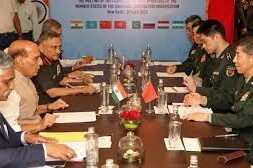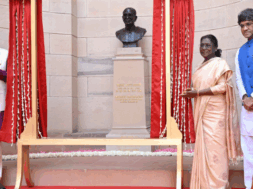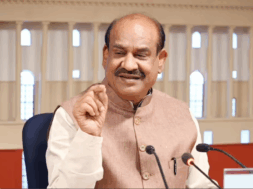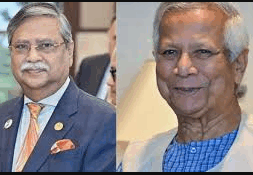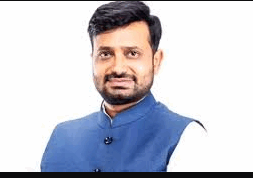
India’s Strong Message to China: Peace and Tranquillity on the Border Must for Better Bilateral Relations
Manas Dasgupta
NEW DELHI, Apr 27: India has send a strong message to China that the relations between the two countries was premised on the prevalence of peace and tranquillity at the borders and the violation of the existing agreements have eroded the entire basis of bilateral relations.
The message was communicated at the meeting of the defence ministers of the two countries held in Delhi on Thursday evening on the sidelines of the Shanghai Cooperation Organisation (SCO) meeting. It was the first meeting of the two defence ministers since the Galwan incident of 2020.
Underscoring the need for peace and tranquillity at the border, New Delhi said “violation of existing agreements has eroded the entire basis of bilateral relations.” A communique released after defence minister Rajnath Singh’s meet with Chinese counterpart General Li Shangfu — — read: “The Raksha Mantri categorically conveyed that development of relations between India and China is premised on prevalence of peace and tranquillity at the borders.”
“He added that all issues at the LAC need to be resolved in accordance with existing bilateral agreements and commitments. He reiterated that violation of existing agreements has eroded the entire basis of bilateral relations and disengagement at the border will logically be followed with de-escalation.”
The talks took place hours after Li arrived in New Delhi to attend a meeting of the defence ministers of the SCO being hosted by India. Li’s visit to India is the first by a Chinese Defence Minister after the eastern Ladakh border standoff began three years ago. The meeting between the two Defence Ministers took place days after the Indian and Chinese armies held the 18th round of military talks on ending the border row.
In the Corps Commander talks on April 23, the two sides agreed to stay in close touch and work out a mutually acceptable solution to the remaining issues in eastern Ladakh at the earliest. However, there was no indication of any clear forward movement in ending the row. India has been maintaining that its ties with China cannot be normal unless there is peace in the border areas.
Chinese foreign minister Qin Gang is also set to visit India next week to attend a conclave of Foreign Ministers of SCO member countries in Goa. The meeting is slated for May 4 and 5.
On Thursday, Singh also held separate bilateral talks with his counterparts from Kazakhstan, Iran and Tajikistan. India is hosting the SCO Defence Ministers’ meeting under its presidency of the grouping. Defence Ministers of China, Russia and other member nations of the SCO except Pakistan are attending the meeting in Delhi. Pakistani Defence Minister Khawaja Asif will attend the meeting through virtual mode, officials said.
The 19 round of talks between the military commanders of India and China has made little headway in resolving the stand-off in eastern Ladakh region. Last month, at a meeting with Chinese foreign minister Qin Gang on the sidelines of a G20 meet, foreign minister S Jaishankar had said the state of India-China relations was “abnormal.”
Li’s visit to India is the first visit by a Chinese defence minister after the June 2020 Galwan clash that derailed bilateral ties. Twenty Indian soldiers killed in the seven-hour deadly conflict near Patrolling Point 14 in Galwan Valley. According to India’s assessment, PLA’s casualties were twice as many as Indian Army’s though Beijing officially claimed that only four Chinese soldiers were killed.
The two sides have been locked in a border row in eastern Ladakh for almost three years.
Despite four rounds of disengagement from Galwan Valley, Pangong Tso, Gogra (PP-17A) and Hot Springs (PP-15), the Indian and Chinese armies still have more than 60,000 troops each and advanced weaponry deployed in the Ladakh theatre. Problems at Depsang in Daulet Beg Oldi sector and Charding Nullah Junction (CNJ) in Demchok sector are still on the negotiating table.
